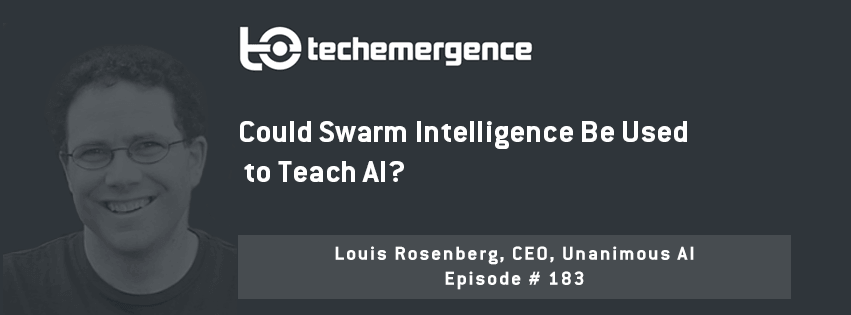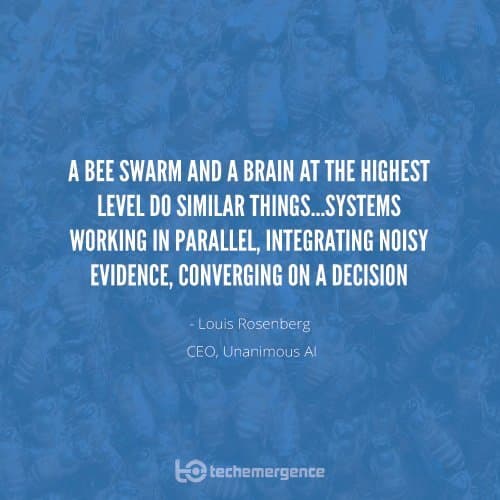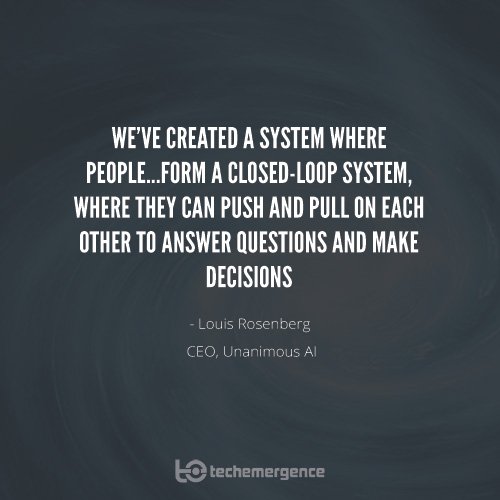
Episode Summary: It isn’t by chance that birds fly in flocks and fish swim in schools – they’re actually smarter when they act in a group. Could it be possible to extend that collective intelligence to human beings, and even AI? Louis Rosenberg is a PhD from Stanford, previously founder of Immersion and who now runs Unanimous AI, a company focusing on harnessing swarm intelligence with human beings. In this episode, Rosenberg speaks about how this collective-intelligence approach has been applied to human beings in terms of garnering improvements in a range of predictions, and he also touches on what this type of swarm intelligence might mean when we talk about multiple AI’s in the future.
Expertise: Virtual/augmented reality, collaborative systems, robotics
Brief Bio: Louis Rosenberg founded Unanimous AI to pursue his combined interests in collaborative systems and human-computer interaction. Rosenberg attended Stanford University, where he earned his Bachelor’s, Master’s, and PhD degrees. His doctoral work focused on robotics, virtual reality, and human-computer interaction. While working as a graduate researcher at the U.S. Air Force’s Armstrong Labs in the early 1990s, Rosenberg created ‘Virtual Fixtures’, the first immersive Augmented Reality system ever built. More recently, Rosenberg founded Outland Research, a developer of advanced interfaces for mobile devices (acquired in 2012). He’s also worked as a tenured Professor at California State University (Cal Poly), teaching design and entrepreneurship. Rosenberg has been awarded more than 300 patents for his technological efforts.
Current Affiliations: CEO of Unanimous AI

Interview Highlights:
(2:02) Where is this seen in the real world? In order to replicate it with humans, it’s nice to have an idea of where hive intelligence comes about – what are some great examples of this?
(11:41) When it comes down to people…where are people using this, your technology or otherwise?
(19:12) Whether it exists now or whether you believe in it moving forward, as the CEO – where are the spaces where you believe swarm intelligence can have a tangible yield, in some sort of business and meaningful sense?
(25:01) Might this pooled collective human insight be used to train a better expert system than our current expert systems that are built off the knowledge of a few people…might there be ways for this technology to enhance other pursued approaches in AI?












